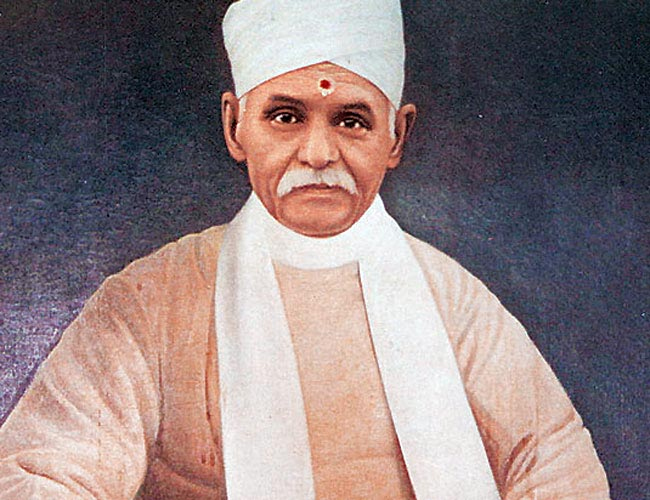Indian History
Pt. Madan Mohan Malaviya
- 27 Dec 2021
- 4 min read
For Prelims: About Pt. Madan Mohan Malaviya, his role in freedom struggle and his contributions
For Mains: Role of Pt. Madan Mohan Malaviya in freedom struggle movements.
Why in News
Recently, the Prime Minister has paid tributes to Pt. Madan Mohan Malaviya on his Jayanti.
Key Points
- Birth: 25th December 1861, in Allahabad (now Prayagraj) in Uttar Pradesh.
- Brief Profile:
- He was a great educationist, pioneer, an eloquent rhetorician, and a national leader.
- He took part in numerous activities like the freedom struggle movements, promotion of industries, the economic and social development of the country, education, religion, social service, development of Hindi language and many other issues of national importance throughout his life.
- He was given the title of ‘Mahamana’ by Mahatma Gandhi and the second President of India, Dr. S. Radhakrishnan gave him the status of a ‘Karmayogi’.
- Role in Freedom Struggle:
- In the freedom struggle, he was midway between the Liberals and the Nationalists, the Moderates and the Extremists, as the followers of Gokhale and Tilak were respectively called.
- In 1930, when Mahatma Gandhi launched the Salt Satyagraha and the Civil Disobedience Movement, he participated in it and courted arrest.
- Role in Congress:
- He was elected as the President of the Congress committee (four times) in 1909, 1918, 1932 and 1933.
- Sengupta was elected Congress chief in 1933 after president-elect Madan Mohan Malviya was arrested.
- He was elected as the President of the Congress committee (four times) in 1909, 1918, 1932 and 1933.
- Contributions:
- Remembered for his role in ending the Indian indenture system, especially in the Caribbean.
- Indentured labour was a system of bonded labour that was instituted following the abolition of slavery in 1833.
- Indentured labour were recruited to work on sugar, cotton and tea plantations, and rail construction projects in British colonies in West Indies, Africa and SouthEast Asia.
- Apprehensive of the possibility of the British completely damming the flow of Ganga at Bhimgoda in Haridwar, he set up the Ganga Mahasabha in 1905.
- He was a social reformer and a successful legislator, serving as a member of the Imperial Legislative Council for 11 years (1909–20).
- Popularized the term ‘Satyamev Jayate’. However, the phrase originally belongs to the Mundaka Upanishad. The term now is the national motto of India.
- Devnagri was introduced in the British-Indian courts because of Malviya’s efforts with the British government.
- Worked immensely for Hindu-Muslim unity. He is known to have given famous speeches on communal harmony.
- He was expelled from the Brahmin community for expressing his views on caste discrimination and Brahmanical patriarchy.
- He helped establish the Hindu Mahasabha (“Great Society of Hindus”) in 1915.
- He founded the Banaras Hindu University (BHU) in 1916.
- Remembered for his role in ending the Indian indenture system, especially in the Caribbean.
- Journalist:
- As a journalist, he started a Hindi weekly, Abhyudaya in 1907 and made it a daily in 1915 and also Hindi monthly, Maryada in 1910.
- He started an English daily- Leader in 1909.
- Malaviya was the editor of Hindi weekly, the Hindustan and Indian Union.
- He was also the Chairman of the Board of Directors of the Hindustan Times for many years.
- Death: He died on 12th November, 1946, at the age of 84.
- Awards and Honours:
- In 2014, he was posthumously conferred with Bharat Ratna, the country's highest civilian award.
- In 2016, the Indian Railways started the Varanasi-New Delhi Mahamana Express in the leader’s honour.





